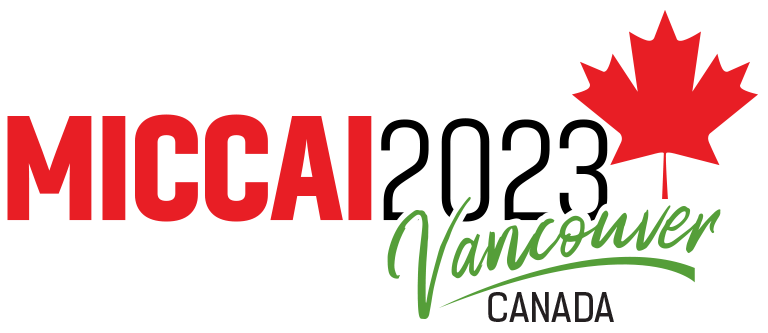This workshop is part of the MICCAI 2023 conference.
Overview
Machine learning (ML) systems are achieving remarkable performances at the cost of increased complexity. Deep neural networks, in particular, appear as black-box machines, and their behavior can sometimes be unpredictable. Furthermore, more complex models are less interpretable, which may cause distrust. As these systems are pervasively introduced to critical domains, such as medical image computing and computer-assisted intervention (MICCAI), developing methodologies for explaining model predictions is imperative. Such methodologies would help physicians to decide whether they should follow/trust a prediction or not and might help to identify failure cases. Additionally, it could facilitate the deployment of such systems from a legal perspective. Ultimately, interpretability is closely related to AI safety in healthcare.
However, there needs to be more work regarding interpretability of ML systems in the MICCAI research. Besides increasing trust and acceptance by physicians, the interpretability of ML systems can be helpful during method development. For instance, inspecting if the model is learning aspects coherent with domain knowledge or studying failures. Also, it may help reveal biases in the training data or identify the most relevant data (e.g., specific MRI sequences in multi-sequence acquisitions). This is critical since the rise of chronic conditions has led to a continuous growth in the usage of medical imaging, while at the same time reimbursements have been declining. Hence, interpretability can help improve image acquisition protocols' productivity by highlighting learned features and their relationships to disease patterns.
The Workshop on Interpretability of Machine Intelligence in Medical Image Computing (iMIMIC) at MICCAI 2023 aims at introducing the challenges & opportunities related to the topic of interpretability of ML systems in the context of MICCAI.
Scope
Interpretability can be defined as an explanation of the machine learning system. It can be broadly defined as global or local. The former explains the model and how it has learned, while the latter explains individual predictions. Visualization is often helpful in assisting the process of model interpretation. The model’s uncertainty may be seen as a proxy for interpreting it by identifying difficult instances. Still, more work is needed to tackle the lack of formal and clear definitions, general approaches, and regulatory frameworks. Additionally, interpretability results often rely on comparing explanations with domain knowledge. Hence, there is a need for defining objective, quantitative, and systematic evaluation methodologies.
This workshop aims to foster discussions, and presentation of ideas to tackle the many challenges and identify opportunities related to the topic of interpretability of ML systems in the context of MICCAI. Therefore, the primary purposes of this workshop are:
- To introduce the challenges/opportunities related to the interpretability of machine learning systems in the context of MICCAI. While there have been workshops on the interpretability of machine learning systems in general machine learning and A.I. conferences (NeurIPS, ICML), to the best of our knowledge, iMIMIC is the only workshop dedicated to the medical imaging application domain.
- To understand the state of the art of this field. This will be achieved through the submitted manuscripts and the invited keynote speakers.
- To join researchers in this field and to discuss the issues related to it and future work.
- To understand the implications of (or lack of) interpretability of machine learning systems in the MICCAI field.
Covered topics include but are not limited to:
- Definition of interpretability in context of medical image analysis.
- Visualization techniques useful for model interpretation in medical image analysis.
- Local explanations for model interpretability in medical image analysis.
- Interpretability methods to make use of multimodal data.
- Causal interpretability.
- Methods to improve transparency of machine learning models commonly used in medical image analysis.
- Textual explanations of model decisions in medical image analysis.
- Uncertainty quantification in context of model interpretability.
- Quantification and measurement of interpretability.
- Legal and regulatory aspects of model interpretability in medicine.
Preliminary Program
PDT time - October 8th
Best paper award
Congratulations to the authors of the best paper award iMIMIC 2023!
"Semantic Latent Space Regression of Diffusion Autoencoders for Vertebral Fracture Grading" by Matthias Keicher et al. [PDF]
Keynote speakers
-
Xiaoxiao Li, University of British Columbia, Canada.
Title: Guidelines and evaluation of XAI in medical imaging

Bio: Xiaoxiao Li is an Assistant Professor at the Department of Electrical and Computer Engineering at the University of British Columbia (UBC) starting August 2021. In addition, Dr. Li holds positions as a Faculty Member at Vector Institute and an adjunct Assistant Professor at Yale University. Before joining UBC, Dr. Li was a Postdoc Research Fellow at Princeton University. Dr. Li obtained her Ph.D. degree from Yale University in 2020. Dr. Li's research focuses on developing theoretical and practical solutions for enhancing the trustworthiness of AI systems in healthcare. Specifically, her recent research has been dedicated to advancing federated learning techniques and their applications in the medical field. Dr. Li's work has been recognized with numerous publications in top-tier machine learning conferences and journals, including NeurIPS, ICML, ICLR, MICCAI, IPMI, ECCV, TMI, TNNLS, and Medical Image Analysis. Her contributions have been further acknowledged with several best paper awards at prestigious international conferences.
Paper submission
Authors should prepare a manuscript of 8-10 pages, including references. The manuscript should be formatted according to the Lecture Notes in Computer Science (LNCS) style and anonymized. As per previous years, we will have preference to publish proceedings following MICCAI Springer’s publication model.
All submissions will be reviewed by 3 reviewers. Authors will be asked to disclose possible conflict of interests, such as cooperation in the previous two years. Moreover, care will be taken to avoid reviewers from the same institution as the authors. The selection of the papers will be based on their relevance for medical image analysis, significance of results, technical and experimental merit, and clear presentation. Following previous editions, we will employ Microsoft’s CMT platform to conduct the review process.
We intend to join the MICCAI Satellite Events joint proceedings, and publish the accepted papers as LNCS. We are also considering making the pre-print of the accepted papers publicly available.
The authors of the best paper of the workshop will receive a Best Paper award.
Click here to submit your paper.
Important dates
- Opening of submission system:
1 June 2023 - Paper submission due:
1 July 2023 - Reviews due:
22 July 2023 - Notification of paper decisions:
5 August 2023 - Camera-ready papers due: 29 August 2023
- Workshop: 8 October 2023
Venue
The iMIMIC workshop will take place as part of MICCAI 2023 conference between 8-12 October 2023 in the Vancouver Convention Centre, Canada.
More information regarding the venue can be found at the conference website.
Organizing Team
General Chairs
- Mauricio Reyes, University of Bern, Switzerland.
- Jaime Cardoso, INESC Porto, Universidade do
Porto, Portugal
- Jayashree Kalpathy-Cramer, MGH Harvard University,
USA.
- Nguyen Le
Minh, Japan Advanced Institute of Science and Technology, Japan.
- Pedro Abreu, CISUC and
University of Coimbra, Portugal.
- José Amorim, CISUC and
University of Coimbra, Portugal.
- Wilson Silva, The Netherlands Cancer Institute, Netherlands.
- Mara Graziani, HES-SO Valais-Wallis, Switzerland.
- Amith Kamath, University of Bern, Switzerland.
Program Committee
- Alex Bäuerle, Ulm University, Germany.
- Angus Nicolson, University of Oxford, UK.
- Axel Mosig, Ruhr University Bochum, Germany.
- Bettina Finzel, University of Bamberg, Germany.
- Cristiano Patrício, Universidade da Beira Interior, Portugal.
- Dwarikanath Mahapatra, Inception Institute of Artificial Intelligence, UAE.
- Helena Montenegro, INESC TEC, Portugal.
- Henning Müller, HES-SO, Switzerland.
- Ines Domingues, ISEC, Portugal.
- Isabel Rio-Torto, FEUP, Portugal.
- Jaime S. Cardoso, INESC Porto, Portugal.
- Lisa Koch, University of Tübingen, Germany
- Luis Teixeira, INESC TEC, Portugal.
- Mauricio Reyes, University of Bern, Switzerland.
- Nataliia Molchanova, Lausanne University Hospital, Switzerland.
- Peter Schüffler, Technical University of Munich, Germany.
- Plácido L. Vidal, University of A Coruña, Spain.
- Susu Sun, University of Tübingen, Germany.
- Tiago FS Gonçalves, INESC TEC, Portugal.
Sponsors
Interested in participating and being a sponsor? Email us




